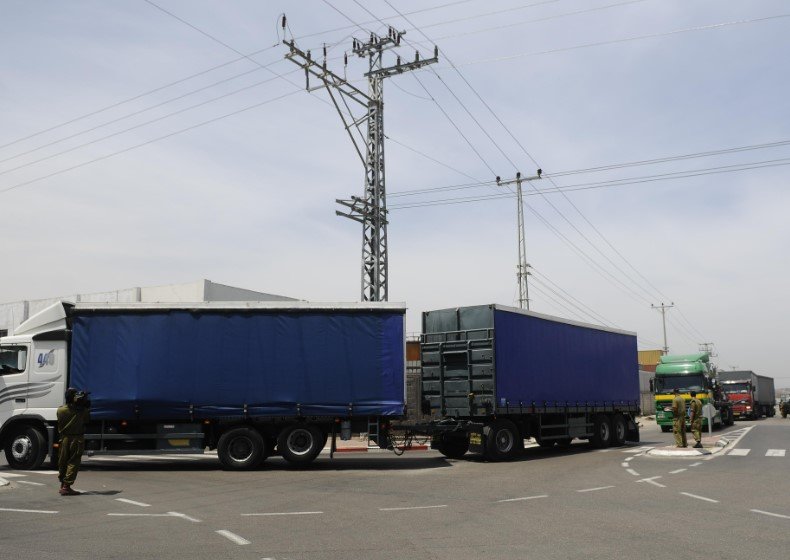Indonesia has stepped up its support for Palestinians in Gaza by sending 10 trucks loaded with 15,000 aid packages through Egypt. This delivery, organized by the National Alms Agency and a local Egyptian foundation, aims to help civilians facing severe shortages due to ongoing conflict.
Details of the Aid Shipment
The trucks departed from Cairo in two groups, five on August 19 and five on August 28, heading to the Rafah border crossing. Each truck carries essential items like food, medicine, and basic supplies to address the humanitarian crisis in Gaza.
This effort comes amid reports of widespread hunger and limited access to necessities in the region. Officials from Indonesia’s agency expressed hope that the aid reaches those in need without delays at border points.
Coordinators worked closely with the Indonesian Embassy in Cairo to monitor the convoy up to a key checkpoint. From there, the trucks join a larger Egyptian-led convoy of about 5,000 vehicles for the final leg into Gaza.
The packages stem from donations collected across Indonesia, reflecting public solidarity with Palestinians. Leaders emphasized that this is part of a broader commitment to humanitarian relief.
Challenges in Delivering Aid to Gaza
Aid deliveries to Gaza often face hurdles, including border restrictions and security checks. Recent updates show that many shipments get delayed or turned back, worsening the situation for residents.
For instance, United Nations reports highlight that a high percentage of aid trucks have been looted or stalled since May. This has led to calls for safer routes and better coordination among international partners.

Indonesia’s latest shipment navigates these issues by partnering with Egyptian groups experienced in cross-border logistics. Experts note that truck convoys via Rafah remain one of the few viable options despite the risks.
Local authorities in Egypt have ramped up convoys, with the 21st one sent just last week carrying more supplies. Such efforts underscore the growing international response to Gaza’s needs.
In addition, airdrops have become a common method, with Indonesia participating in recent operations that dropped hundreds of pallets over the enclave.
Broader Context of Indonesia’s Support
Indonesia has a history of aiding Gaza, including airdropping 91 tons of supplies since August 17. This truck delivery builds on those actions, showing a mix of ground and air strategies.
The country also plans to treat up to 2,000 injured Palestinians on a dedicated island, though details are still under discussion. This reflects Indonesia’s push for medical and humanitarian aid amid global concerns.
Public donations fund these initiatives, with agencies like Baznas channeling alms and charity. Leaders stress the importance of ensuring every donation makes a real impact.
Recent events, such as diplomatic meetings in Cairo on Gaza’s hunger crisis, highlight the urgency. Indonesia has been urged to lead United Nations efforts on this front.
Here are key elements of Indonesia’s recent aid efforts:
- Truck deliveries: 10 vehicles with 15,000 packages via Egypt.
- Airdrops: Multiple operations involving food and medicine.
- Medical plans: Proposal to treat thousands of injured people.
- Partnerships: Collaborations with Egyptian and Jordanian groups.
Impact on Gaza’s Humanitarian Situation
The aid arrives at a critical time, as famine risks mount in Gaza. Reports from aid groups indicate that daily meal distributions have dropped sharply compared to earlier months.
For example, community kitchens now provide around 259,000 meals per day, down from over a million in April. This decline stems from access issues and supply shortages.
Indonesia’s contribution could help fill some gaps, providing essentials to families in northern, central, and southern Gaza. Observers say sustained efforts are needed to prevent further deterioration.
International bodies continue to monitor the situation, with data showing over 2,600 aid trucks affected by looting or delays in recent months.
| Aid Type | Quantity | Delivery Method | Date |
|---|---|---|---|
| Food and essentials | 15,000 packages | Trucks via Egypt | August 2025 |
| Airdropped supplies | 91 tons | Aircraft | Since August 17, 2025 |
| Medical aid | Planned for 2,000 people | Treatment facilities | Ongoing discussions |
| Previous convoys | Various | Trucks and airdrops | Throughout 2025 |
Global Response and Future Outlook
Countries like Egypt and Jordan have facilitated similar deliveries, with Egypt sending multiple convoys this year. Indonesia’s role adds to a collective push against the blockade’s effects.
Experts suggest more nations should join, perhaps through United Nations channels, to boost aid volume. Indonesia’s actions may inspire others in Southeast Asia to contribute.
As the conflict persists, aid groups call for ceasefires to allow unrestricted access. Without that, deliveries like this one remain vital lifelines.
Looking ahead, Indonesia aims to expand its support, potentially including more shipments and advocacy on the world stage.
What do you think about these aid efforts? Share your thoughts in the comments and spread the word to raise awareness.
